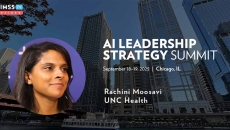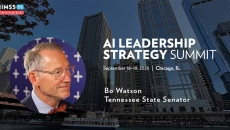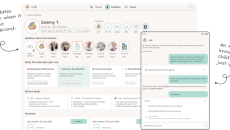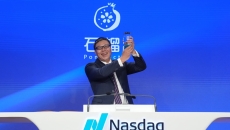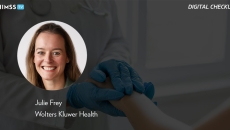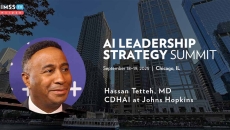AI
Rachini Moosavi, chief analytics officer at UNC Health, discusses moving beyond big genAI efforts to transforming smaller scale processes and workflows.
In this special hour-long episode, recorded in Chicago at the inaugural event, our hosts and guests offer a wide-ranging discussion about smart AI investments and strategic alignment. Produced in collaboration with the Straight Outta Health IT podcast.
The tech giant is expanding its Dragon Copilot to support nursing workflows while integrating third-party AI tools from digital health partners.
AI systems demand massive energy infrastructure, and Tennessee State Sen. Bo Watson says his state has allocated $60 million to develop alternative energy sources to help meet AI's power needs.
Also, a new AI-driven genomics platform developed in Queensland can identify cancer biomarkers and predict tumour responses to chemotherapy.
Also, health IT company UCrest from Malaysia has received its first patent for its AI-powered digital platform from Taiwan.
Julie Frey, VP of product at Wolters Kluwer Health, discusses how the company's clinical decision support tool, which combines trusted evidence with generative AI, fits into clinical workflows and augments physicians' judgment.
The company's CEO, Tom Hale, told MobiHealthNews Oura will use the funds "for AI-driven innovation to redefine what digital health technology can do."
The package of bills aims to bolster protections for children using online chatbots, including prohibiting chatbots from representing themselves as healthcare professionals.
Dr. Hassan Tetteh of the Johns Hopkins Center for Digital Health and AI says that agentic AI has the potential to surpass human intelligence and change the way we work, but can also enable personalized, more patient-driven healthcare.
